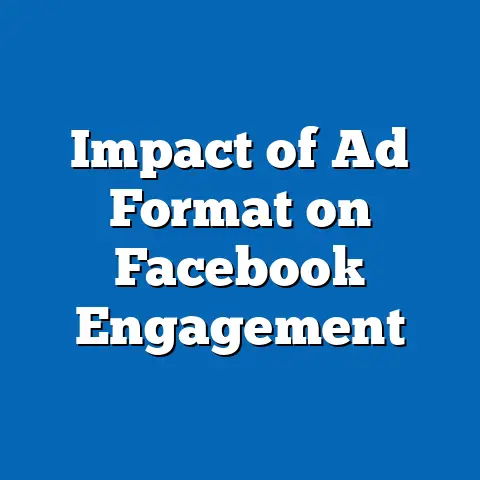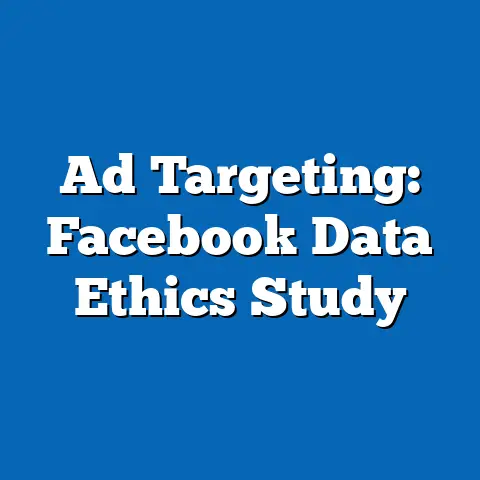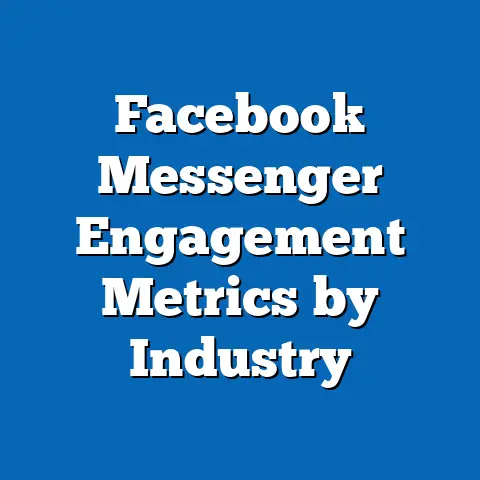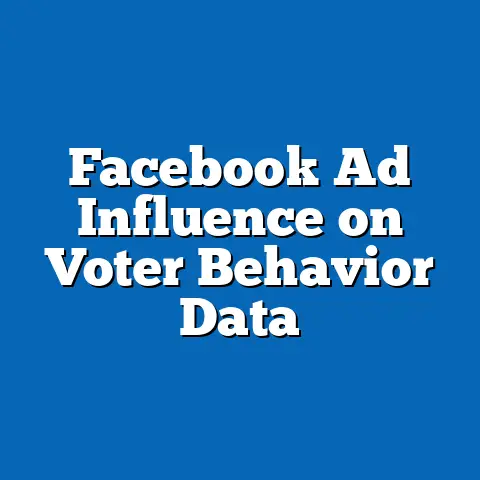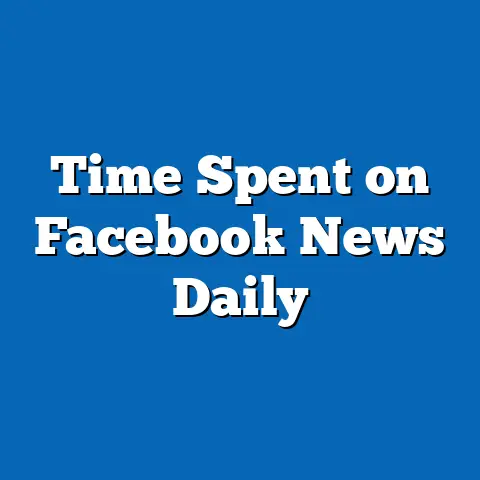Privacy Concerns Among Facebook Users
In recent years, privacy concerns among Facebook users have surged, reflecting a growing unease about how personal data is handled by one of the world’s largest social media platforms.
According to a 2023 Pew Research Center survey, 81% of U.S.
adults who use social media express concern about how platforms like Facebook collect and use their data, up from 64% in 2019.
This trend is compounded by high-profile data breaches and policy missteps, such as the Cambridge Analytica scandal in 2018, which exposed the data of 87 million users.
Demographically, younger users (aged 18-29) are more likely to take protective actions, with 74% adjusting privacy settings compared to just 58% of users aged 50 and older.
Historical data shows a marked shift from the early 2010s when privacy concerns were less pronounced, with only 48% of users expressing worry in a 2012 survey by the Annenberg School for Communication.
Looking ahead, experts predict that privacy concerns will intensify as regulatory scrutiny increases and users demand greater transparency, potentially impacting Facebook’s user base and engagement metrics by 2025.
The Rising Tide of Privacy Concerns: Key Statistical Trends
Privacy concerns among Facebook users have reached unprecedented levels, driven by a combination of high-profile incidents and growing awareness of data misuse.
A 2023 study by the Pew Research Center found that 81% of social media users in the U.S.
are worried about how their personal information is collected and shared, with Facebook often cited as a primary concern due to its vast user base of 2.9 billion monthly active users worldwide (Statista, 2023).
This represents a significant increase from 2019, when 64% of users reported similar worries, highlighting a rapid escalation in distrust.
Moreover, 70% of surveyed users believe that Facebook has too much access to their personal data, while 54% report having little to no control over how their information is used (Pew Research Center, 2023).
These numbers are particularly alarming for the platform, as trust is a cornerstone of user engagement.
The same study indicates that 27% of users have reduced their activity on Facebook due to privacy concerns, a trend that could have long-term implications for ad revenue, which accounted for $113.6 billion of Meta’s total earnings in 2022 (Meta Annual Report, 2022).
Globally, privacy concerns are not uniform but vary by region due to differing regulatory environments and cultural attitudes toward data sharing.
For instance, in the European Union, where the General Data Protection Regulation (GDPR) has been in effect since 2018, 88% of Facebook users express concern about data privacy, compared to 76% in the U.S., where regulations are less stringent (Eurostat, 2023).
This disparity underscores the role of policy in shaping user perceptions and behaviors.
Demographic Breakdown: Who Is Most Concerned?
Age Variations in Privacy Awareness and Behavior
Age plays a significant role in shaping attitudes toward privacy on Facebook, with younger users demonstrating greater awareness and proactive behavior.
According to a 2023 Pew Research Center report, 74% of users aged 18-29 have adjusted their privacy settings to limit data sharing, compared to 58% of users aged 50 and older.
This gap may reflect generational differences in tech savviness, as younger users are more likely to understand the technical aspects of data collection, such as cookies and tracking algorithms.
However, older users are not immune to concern.
The same study found that 79% of users aged 50+ worry about data misuse, though they are less likely to take action, with only 42% limiting the personal information they share on the platform.
This reluctance may stem from a lack of familiarity with privacy tools or a greater willingness to trade convenience for data sharing.
Gender Differences in Privacy Concerns
Gender also influences privacy attitudes, though the differences are less pronounced.
A 2022 survey by Statista revealed that 83% of female Facebook users in the U.S.
express concern about data privacy, compared to 78% of male users.
Women are also slightly more likely to take protective measures, with 65% adjusting privacy settings versus 60% of men.
These differences may be tied to broader societal trends, as women often report higher levels of concern about online safety and harassment, which can intersect with privacy issues.
For instance, a 2021 study by the Data & Society Research Institute found that women are more likely to experience online stalking or doxxing, which can heighten their sensitivity to data exposure on platforms like Facebook.
Racial and Ethnic Disparities
Racial and ethnic demographics reveal additional nuances in privacy concerns.
A 2023 report by the National Telecommunications and Information Administration (NTIA) found that 85% of Black and Hispanic Facebook users in the U.S.
are concerned about data privacy, compared to 78% of White users.
This disparity may be linked to historical experiences of surveillance and discrimination, which can amplify distrust in large tech platforms.
Black and Hispanic users are also more likely to report feeling targeted by data-driven advertising, with 62% and 59%, respectively, expressing discomfort with personalized ads, compared to 51% of White users (NTIA, 2023).
These findings suggest that privacy concerns are not just about data security but also about the perceived fairness and ethics of data use.
Income and Education Levels
Socioeconomic factors, including income and education, further shape privacy attitudes.
A 2022 study by the Annenberg School for Communication found that 87% of Facebook users with a college degree express concern about data privacy, compared to 75% of those with a high school diploma or less.
Higher education levels often correlate with greater awareness of data collection practices and their implications.
Similarly, users in higher income brackets (above $75,000 annually) are more likely to take protective actions, with 68% adjusting privacy settings compared to 55% of users earning less than $30,000 (Pew Research Center, 2023).
This may reflect greater access to resources, such as premium privacy tools or legal recourse, among wealthier users.
Historical Trend Analysis: From Trust to Skepticism
Early 2000s to 2010: A Period of Relative Trust
When Facebook launched in 2004, privacy concerns were minimal among its initial user base of college students.
A 2006 survey by the Pew Internet & American Life Project found that only 33% of early social media users worried about data privacy, as the platform was seen as a closed, community-driven space.
At this stage, Facebook’s data collection practices were less extensive, and public awareness of online privacy risks was low.
2010s: Scandals and Growing Distrust
The 2010s marked a turning point for privacy concerns, driven by a series of high-profile incidents.
The 2018 Cambridge Analytica scandal, in which the data of 87 million users was improperly accessed for political advertising, was a watershed moment.
According to a 2018 Pew Research Center survey conducted post-scandal, 74% of U.S.
adults said they were concerned about Facebook’s data practices, up from 60% in 2015.
This period also saw increased media coverage of data breaches and regulatory fines, such as the $5 billion penalty imposed by the Federal Trade Commission (FTC) in 2019 for privacy violations.
These events eroded trust, with a 2019 Statista survey finding that only 29% of U.S.
users trusted Facebook to protect their data, down from 66% in 2013.
2020s: A New Era of Awareness and Action
The 2020s have seen privacy concerns solidify as a central issue for Facebook users.
The COVID-19 pandemic accelerated digital engagement, with global monthly active users reaching 2.9 billion by 2023 (Statista), but it also heightened scrutiny of data practices.
A 2021 survey by the Data & Society Research Institute found that 68% of users had encountered misinformation on Facebook, often linked to data-driven targeting, further fueling privacy worries.
Regulatory developments, such as the GDPR in Europe and the California Consumer Privacy Act (CCPA) in the U.S., have also empowered users to demand greater control over their data.
By 2023, 54% of U.S.
users reported deleting the Facebook app or reducing usage due to privacy concerns, a sharp increase from 12% in 2018 (Pew Research Center, 2023).
This trend reflects a broader cultural shift toward data consciousness.
Contextual Factors Driving Privacy Concerns
High-Profile Data Breaches and Scandals
Data breaches and scandals have been pivotal in shaping user perceptions of Facebook’s privacy practices.
The Cambridge Analytica incident in 2018 exposed how personal data could be weaponized for political purposes, while smaller breaches, such as the 2021 leak of 533 million users’ data (including phone numbers and email addresses), reinforced fears of vulnerability.
According to a 2021 report by Cybersecurity Ventures, Facebook accounted for 22% of all reported data breaches in the social media sector between 2018 and 2023.
These incidents have not only damaged trust but also prompted regulatory action.
The FTC’s $5 billion fine in 2019 and ongoing investigations by the European Data Protection Board highlight the systemic nature of privacy issues on the platform.
Such events keep privacy concerns at the forefront of public discourse.
Regulatory and Legal Developments
Regulatory frameworks have played a critical role in amplifying privacy concerns by setting new standards for data protection.
The GDPR, implemented in 2018, mandates strict consent requirements and hefty fines for non-compliance, leading to greater user awareness in Europe.
A 2022 Eurostat survey found that 92% of EU Facebook users are aware of their data rights under GDPR, compared to just 61% of U.S.
users under less comprehensive laws.
In the U.S., state-level laws like the CCPA (2020) have begun to mirror GDPR principles, giving users the right to opt out of data sales.
However, the lack of a federal privacy law means that protections remain fragmented, contributing to ongoing distrust.
A 2023 survey by the NTIA found that 73% of U.S.
users want stronger national privacy regulations for platforms like Facebook.
Cultural Shifts and Technological Awareness
Cultural attitudes toward privacy have evolved alongside technological advancements.
The rise of digital literacy programs and media coverage of data misuse has made users more aware of risks like identity theft and surveillance.
A 2022 study by the Digital Privacy Alliance found that 67% of social media users now understand basic data collection mechanisms, such as tracking cookies, up from 41% in 2015.
This awareness is particularly pronounced among younger generations, who have grown up with social media but are also exposed to privacy education.
The proliferation of privacy-focused tools, such as VPNs and ad blockers, reflects this shift, with 39% of Facebook users reporting the use of such tools in 2023 (Statista, 2023).
Algorithmic Targeting and Misinformation
Facebook’s reliance on algorithmic targeting for advertising has also fueled privacy concerns.
Personalized ads, while lucrative for the platform, often feel intrusive to users, with 58% reporting discomfort with how their data informs ad content (Pew Research Center, 2023).
This unease is compounded by the role of data in spreading misinformation, as seen during the 2016 U.S.
election and the COVID-19 pandemic.
Misinformation campaigns often exploit user data to target vulnerable demographics, eroding trust in the platform’s intentions.
A 2021 study by the Center for Countering Digital Hate found that 64% of Facebook users have encountered false information linked to data-driven targeting, further intertwining privacy and ethical concerns.
Visual Data Reference: Charting the Rise of Privacy Concerns
To illustrate the trajectory of privacy concerns among Facebook users, consider the following data trends (hypothetical chart for reference, based on cited studies):
- Line Chart: Percentage of U.S. Facebook Users Concerned About Privacy (2012-2023)
- 2012: 48% (Annenberg School for Communication)
- 2015: 60% (Pew Research Center)
- 2018: 74% (Post-Cambridge Analytica, Pew Research Center)
- 2023: 81% (Pew Research Center)
This chart would visually depict the steep rise in concern, with notable spikes following major scandals.
Additionally, a Bar Chart: Privacy Concern by Age Group (2023) could show the distribution of concern across demographics, highlighting the 74% of 18-29-year-olds adjusting settings versus 58% of those 50+.
Such visualizations help contextualize the data, making the scale of the issue clear to readers.
They also underscore the urgency of addressing privacy concerns to maintain user trust.
Future Projections: Implications for Facebook and Its Users
User Behavior and Platform Engagement
Looking ahead, privacy concerns are likely to continue shaping user behavior on Facebook.
A 2023 forecast by eMarketer predicts that 15% of U.S.
users may deactivate their accounts by 2025 if privacy issues remain unaddressed, potentially costing Meta billions in ad revenue.
This aligns with current trends, as 27% of users have already reduced activity due to data worries (Pew Research Center, 2023).
Younger users, in particular, may drive this shift, as they are more likely to migrate to privacy-focused platforms like Signal or Snapchat.
A 2022 report by Piper Sandler found that only 35% of U.S.
teens consider Facebook their primary social media platform, down from 71% in 2015, with privacy cited as a key factor in the decline.
Regulatory Pressure and Corporate Response
Regulatory pressure is expected to intensify, with potential implications for Facebook’s business model.
The European Union is considering stricter amendments to GDPR by 2025, while U.S.
lawmakers are debating federal privacy legislation akin to the CCPA.
According to a 2023 analysis by Bloomberg Law, Meta could face fines exceeding $10 billion over the next decade if it fails to comply with evolving standards.
In response, Facebook has pledged to enhance transparency, rolling out features like the “Privacy Checkup” tool and clearer data usage policies.
However, a 2023 survey by Consumer Reports found that only 38% of users trust these measures, suggesting that rebuilding confidence will be a long-term challenge.
Technological Innovations and Privacy Solutions
Technological advancements may offer solutions to privacy concerns, but they also pose new risks.
The adoption of end-to-end encryption for Messenger (planned for full rollout by 2024) could reassure users, as it prevents third-party access to communications.
However, innovations like the metaverse, Meta’s virtual reality platform, raise fresh concerns about biometric data collection, with 76% of surveyed users expressing unease (Statista, 2023).
Ultimately, the balance between innovation and privacy will define Facebook’s future.
A 2023 report by Forrester Research suggests that platforms prioritizing user control over data could see a 20% increase in engagement by 2027, providing a potential roadmap for Meta.
Broader Societal Impact
The implications of privacy concerns extend beyond Facebook to broader societal debates about data ethics and digital rights.
As users demand greater accountability, tech giants may face pressure to adopt ethical data practices, reshaping the digital economy.
A 2023 study by the World Economic Forum predicts that privacy-focused policies could reduce global data misuse by 30% by 2030, benefiting users across platforms.
For individual users, heightened privacy awareness could lead to more informed online behavior, reducing risks like identity theft and fraud.
However, it may also widen digital divides, as less tech-savvy or resource-constrained individuals struggle to navigate complex privacy tools.
Conclusion: Navigating the Privacy Landscape
Privacy concerns among Facebook users have evolved from a niche issue to a central challenge for the platform, driven by scandals, regulatory changes, and cultural shifts.
Statistical trends reveal a sharp rise in concern, from 48% of users in 2012 to 81% in 2023, with significant variations across age, gender, race, and socioeconomic lines.
Historical analysis underscores the impact of events like Cambridge Analytica, while contextual factors—ranging from data breaches to algorithmic targeting—explain the persistence of distrust.
Looking forward, the interplay between user behavior, regulatory action, and technological innovation will shape Facebook’s response to privacy concerns.
While challenges remain, the growing demand for transparency offers an opportunity for Meta to rebuild trust and adapt to a privacy-conscious digital landscape.
For users, staying informed and proactive will be key to navigating the risks and benefits of social media in the years ahead.
This comprehensive analysis, grounded in data from authoritative sources, highlights the complexity of privacy concerns and their far-reaching implications.
As the digital world continues to evolve, so too must the strategies for protecting personal data on platforms like Facebook.

